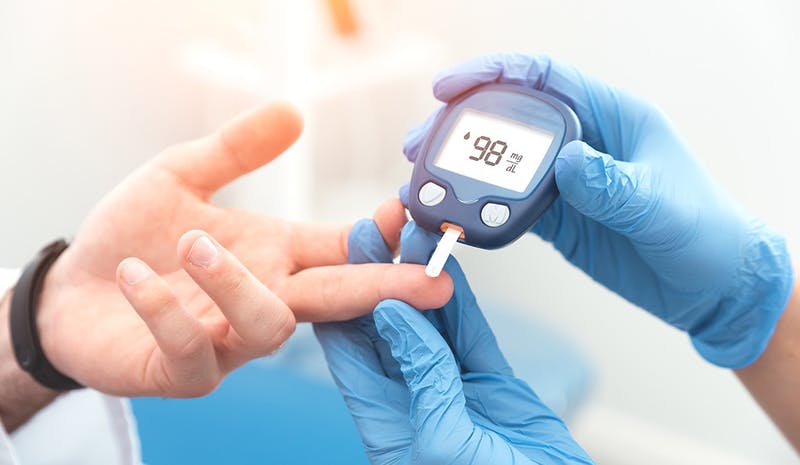Individuals with diabetes are among those who could be at higher risk of complications from COVID-19

Fluctuating blood sugar levels generally increase the risk of other complications, which could mean worse outcomes in the case of COVID-19.
Diabetologists from Imperial College London Diabetes Centre (ICLDC) in Abu Dhabi, UAE, are calling for good diabetes management during the COVID-19 pandemic. Individuals with diabetes are among those who could be at higher risk of complications from COVID-19, and this is the time for them to be extra vigilant in monitoring their blood sugar and managing their condition.
ICLDC consultant endocrinologist and diabetologist Dr. Sara Suliman says that people with diabetes need to be even more careful than the general public in following preventative advice such as handwashing and social distancing. They also need to pay special attention to controlling their blood sugar levels.
Dr. Suliman explains: “Fluctuating blood sugar levels generally increase the risk of other complications, and this could mean worse outcomes in the case of COVID-19 since the body’s ability to fight infection is compromised. In addition, above-target blood sugar levels can mean that viral infections cause increased inflammation, which could make the reaction worse.”
She says some experts believe that if blood sugar is well controlled and there are no other comorbidities – in other words, no other conditions associated with diabetes such as heart disease – then the effects of COVID-19 might be no different than those of individuals with no underlying medical conditions.
However, Dr Suliman cautions: “We cannot state this for certain yet, it is too early, but it makes sense, and diabetes patients should be extra vigilant in monitoring their blood sugar levels and managing their condition during this pandemic.”
An important factor in protecting patients is to ensure wherever possible, they stay at home and avoid contact with others. For this reason, Suliman advises people, and especially those in high-risk categories such as pregnant women and the over 60-year-olds, not to visit the clinic for their regular check-ups, or if they feel unwell.
If a patient suspects they have COVID-19, they should contact the Department of Health – Abu Dhabi for advice on 8001717, but for everything else, they should call the ICLDC helpline at 800 42532, and they will be advised on the next steps.
Teleconsultation
In many cases, patients will be able to have their appointment kept as a teleconsultation, complete with prescription and medication delivery to their doorstep within 7-10 days if appropriate.
“Our ICLDC doctors are also working with our sister Mubadala Healthcare facility, Abu Dhabi Telemedicine Centre (ADTC), to provide consultations via telephone or video calls. All Daman Enhanced and Thiqa cardholders can call ADTC at 800-4959 at any time of day or night for medical advice,” Suliman explains.
“We also suggest that our patients download the ICLDC app so that they will have access to their medical information such as test results, targets, latest diagnosis and medication.”
Warning signs: When to call the health authorities
If individuals with diabetes have any of the following signs, they should telephone their relevant health authority to ask for about immediate medical care:
- Shortness of breath
- A fever that won’t go away after a couple of days, especially in the case of recent contact with someone who may have COVID-19
- High levels of ketones (tested using ketostix)
- Inability to keep food or liquid down for more than four to six hours
- Persistently high (>250mg/dl) or low blood glucose (<60mg/dl), especially if insulin is used
- Sleepiness, drowsiness or confusion
